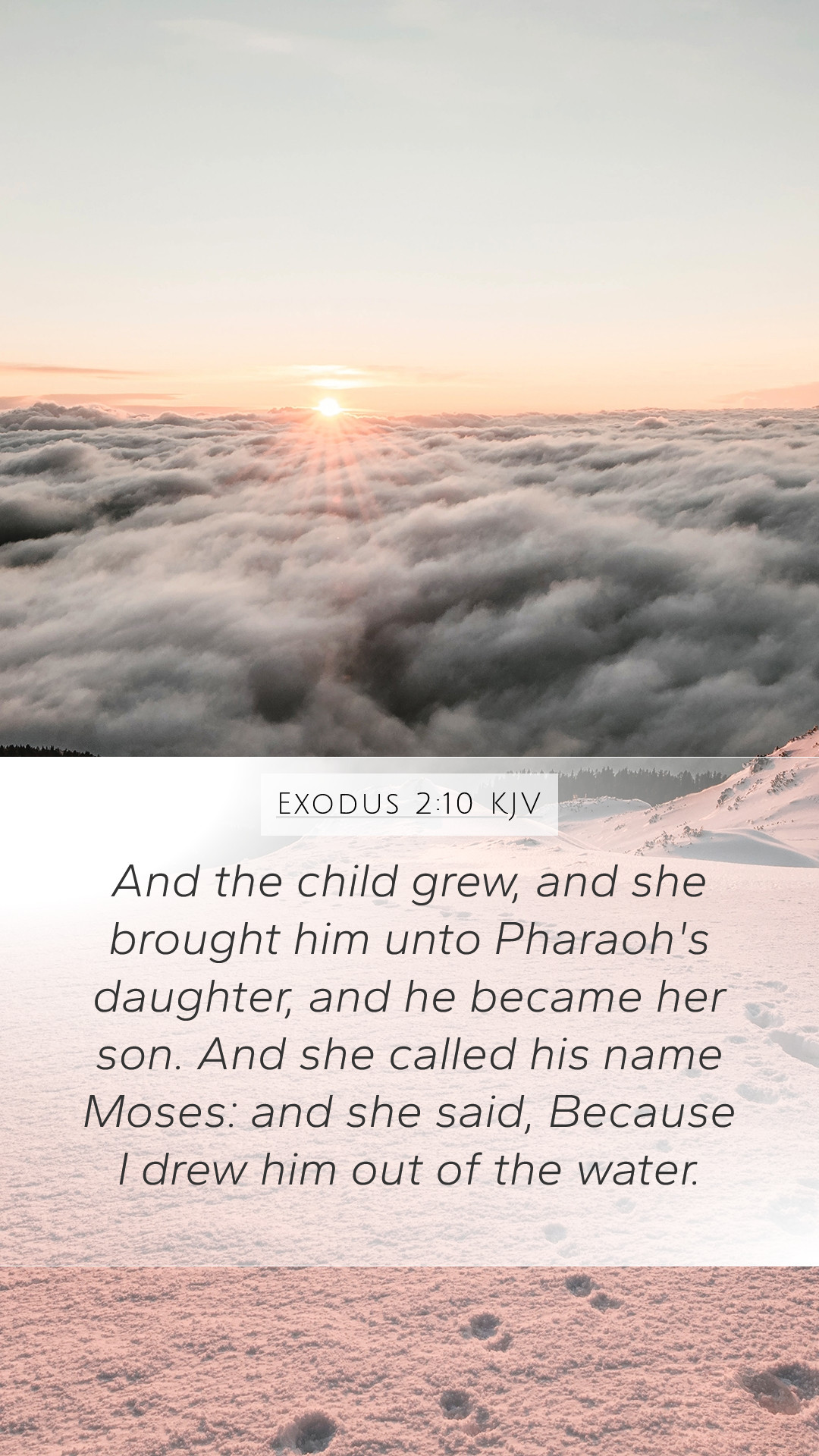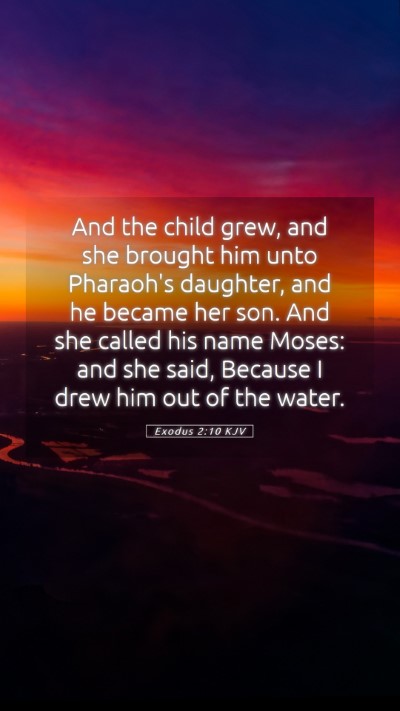Bible Verse Explanation: Exodus 2:10
Bible Verse: Exodus 2:10 (ESV) - "When the child grew older, she brought him to Pharaoh’s daughter, and he became her son. She named him Moses, ‘Because,’ she said, ‘I drew him out of the water.’"
Summary of Meaning
Exodus 2:10 encapsulates a pivotal moment in the life of Moses, demonstrating the divine orchestration behind his early life and calling. Public domain commentaries provide rich insights into the broader implications of this verse. By understanding the context and nuances, we gain a deeper appreciation of God’s providence in Scripture.
Contextual Analysis
- Historical Background: This verse occurs within the narrative of Moses's birth and early years in Egypt, a time when the Israelites were enslaved and facing oppression.
- Character Insights: Pharaoh's daughter emerges as a figure of compassion, taking in a Hebrew child despite the danger it posed to her status.
- The Name 'Moses': The name given to him, meaning "drawn out," reflects not only his literal rescue but foreshadows his future role in delivering the Israelites from bondage.
Commentary Insights
Matthew Henry: Henry notes the providential care of God in Moses's upbringing. He emphasizes that God often uses unexpected means, such as Pharaoh's daughter, to fulfill His purposes. Henry reinforces the notion that the name ‘Moses’ is significant as it encapsulates both his deliverance and the hope of a future deliverer for Israel.
Albert Barnes: Barnes offers a detailed view on the implications of Moses being raised in the household of Pharaoh. He explains how this experience equipped Moses with a unique perspective that would later aid in his leadership. Barnes points out that Pharaoh's daughter's actions were not merely maternal but underscored a divine plan rooted in God’s foresight.
Adam Clarke: Clarke highlights the importance of the naming of Moses and its connection to the narrative of deliverance. He suggests that the act of naming indicates a deeper identity being formed, one that aligns with God's plan for the Hebrew people. Clarke also discusses the societal risks involved and the boldness of Pharaoh's daughter in defying the norms of her position.
Bible Study Insights
The verse allows for considerable reflection in Bible study groups and online Bible study sessions, as it illustrates themes of divine protection, identity, and purpose. It raises questions such as:
- What does Exodus 2:10 reveal about God's providential care?
- How can we apply the significance of names in the Bible to our lives today?
- In what ways does this event foreshadow Moses's future role as a leader and deliverer?
Applications for Daily Life
This verse serves as a poignant reminder of how God’s plans often unfold through unexpected circumstances. One can reflect on the following applications:
- Trust in God’s Plan: Understanding that God is at work behind the scenes encourages believers to trust in His timing and purpose.
- Embrace Unconventional Means: Just as Moses’s path was led by an unexpected individual, we should remain open to how God may use others to shape our destinies.
- Identity in God: Just as Moses's name and identity were defined by his deliverance, we should embrace our identity as children of God, redeemed for a purpose.
Cross References
- Acts 7:20-22 - Highlights Moses's early life and his education in Egypt.
- Hebrews 11:23-27 - Discusses the faith of Moses's parents and his eventual choice to identify with his people.
- Exodus 3:10 - The call of Moses as a leader of Israel out of Egypt.
Conclusion
As we delve into Bible verse meanings and interpretations, Exodus 2:10 exemplifies God’s intricate purpose woven through human actions and decisions. This narrative invites us to consider the significant themes of identity, divine intervention, and the roles we play in God’s redemptive story.


